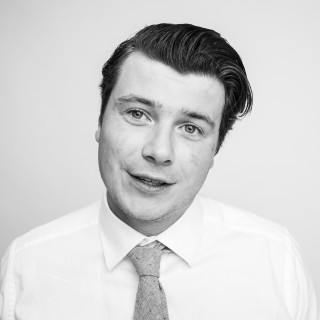It was Match Day 2019, and it was a cause for celebration. It was pre-pandemic, when we could still gather together in groups and celebrate the amazing accomplishments of the medical school class of 2019, the class that I had started with on my medical education journey. I parked in the parking lot, full of excitement and joy for my fellow classmates, but as I made my way up to the local gathering, a different feeling started to creep in. My classmates were moving on without me.
I am a dual degree MD/PhD student. Like most dual degree students, we begin by taking the same medical school courses and then diverge from the standard curricula at some point in our clinical training. In my case, I spent two years frantically studying, cramming, and learning about the human body with a fantastic class of students. We hovered over cadavers and quizzed each other on the branches of the brachial plexus. We shared small groups, coffee, study tips, complaints about simulated patients, and anxieties over the next "Steps." During the third year, they turned to the clinical wards, and I turned to research. We had a clean breakup, both of us going in different directions. But in the back of my mind, I knew my classmates were somewhere in the hospital, buried in their clinical duties. I would pass them in hospital hallways or see them occasionally at a grand rounds seminar. I knew they were there, somewhere in the abyss of third and fourth-year clinical rotations.
Match Day, however, was very different. This was when I knew they were moving on. And all I could feel was sadness.
I knew I should be happy. My friends were all passing a fantastic milestone in medical education and moving on to the next step. Many had matched to their top choices and were surrounded by their friends and family, celebrating this monumental moment. But all I could think about was that my friends would disappear, off to greener, different, or far away pastures. I sat on some stairs overlooking the city and wondered if I had made the right choice in pursuing a dual degree. I wondered what my Match Day would look like, and would I again feel alone? Would I again feel the aching sadness as I moved from one place to the next?
I have had a year to unpack the multitude of feelings I felt on Match Day and have finally concluded that sadness often points towards something special. I wish I could say I discovered this in an epiphany immediately after Match Day and understood all the significance that this conclusion held. But, like all hard things, it took consistent interpersonal work to develop this understanding. I had to carefully examine many things that make me sad: the passing of my childhood dog, distancing friends, and losing loved ones. As I carefully sifted through the multitude of sad experiences, a common theme emerged: all were a loss of something great and important to me or the people around me. When I examined Match Day 2019, I realized the sadness that poured over me was not something to ignore: it was telling me I had cultivated relationships that meant something. I had made friends and colleagues that I would remember forever — people who shaped how I practice medicine, people who shaped how I show up as a person, and people who have helped me grow as a human being.
Therefore, throughout medical education and beyond, I truly hope that many of us feel sadness. I hope that we feel sad when we lose a patient or when a patient leaves our care. I hope that we feel sad when a colleague moves away. I hope that we feel sad when our garden dies over the winter. It means we made something good. It means we have connected with our patients and our peers.
I am not going to suggest that any of this is easy. After I realized sadness pointed towards special moments, I hoped that I would only see sad things in a positive light. That has not happened. There are not fewer sad moments. The sad moments are not any more comfortable. I have to continually work at framing my emotions in a positive way. After several active months of trying, I can confirm this will be a lifelong pursuit.
Many, if not all of us, went into medicine for the happy moments. For the moments when we bring life to the world, lighten a patient’s burden, or help a family through a difficult time. We did not come for sad moments. However, I believe that the sad moments are equally as valuable and should be cherished. Sadness tells us we created something meaningful.
How do you view change in life and medicine? Share your thoughts in the comments below.
Brian Zenger has a BS in Biomedical Engineering and is a MD/PhD student in Biomedical Engineering at the University of Utah. In addition to his clinical and research responsibilities he is the founding volunteer coordinator and current director of the No One Dies Alone program at the University of Utah. He is an active member of the community serving as a volunteer and in multiple leadership positions. He is a 2020–2021 Doximity Op-Med Fellow.
Image by Jaromir Chalabala / Shutterstock







